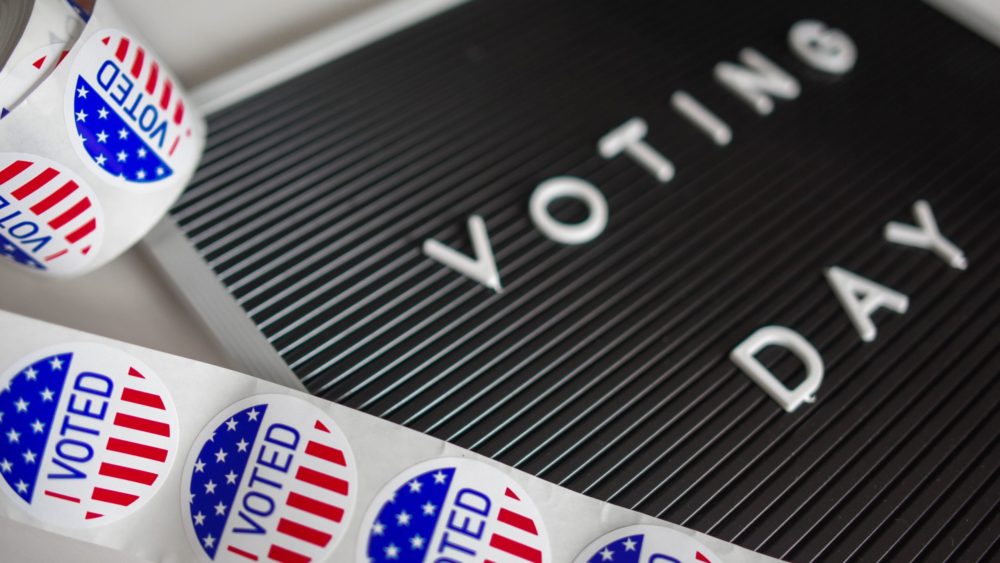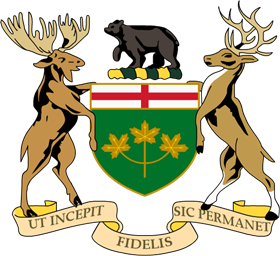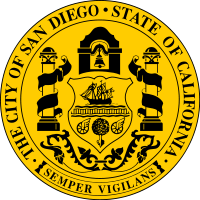December 17, 2020 •
Cincinnati Councilwoman Betsy Sundermann Proposes Charter Amendment

Cincinnati Skyline - by Mr. RNGAndreson
Cincinnati City Councilwoman Betsy Sundermann proposed a charter amendment to the city charter. The amendment would allow the city to suspend a council member upon the filing of an indictment or certain criminal charges, and to remove them if convicted. […]
Cincinnati City Councilwoman Betsy Sundermann proposed a charter amendment to the city charter.
The amendment would allow the city to suspend a council member upon the filing of an indictment or certain criminal charges, and to remove them if convicted.
There is currently no provision in the Cincinnati Charter addressing what happens in the event of public corruption allegations.
The proposed charter amendment also requires ethics training for new council members within 60 days of oath of office.
The amendment also prohibits council members from amending their successor designation certificate after being indicted.
If approved by council, the charter amendment would be submitted to the voters for approval in 2021.
August 13, 2020 •
Group Seeks to Block Measure 3 from November Ballot in North Dakota

North Dakota Secretary of State Al Jaeger confirmed a third measure to be on the November ballot. Measure 3, a constitutional amendment put forth by Fargo-based North Dakota Voters First, makes several changes to election procedures. This amendment creates paper […]
North Dakota Secretary of State Al Jaeger confirmed a third measure to be on the November ballot.
Measure 3, a constitutional amendment put forth by Fargo-based North Dakota Voters First, makes several changes to election procedures.
This amendment creates paper record and audit requirements for ballots; requires ballots to be sent to military and overseas voters at least 61 days before an election; and makes the Ethics Commission responsible for state legislative redistricting procedures.
The amendment would also introduce an open primary system in which all candidates, regardless of party, would appear on a single ballot.
This would also have the top four candidates advancing to the general election.
A ranked-choice vote would decide the winner.
Additionally, if implemented, North Dakota would become only the second state in the country, after Maine, to employ a statewide ranked-choice system.
A North Dakota-based 501(c)(4) called Brighter Future Alliance is challenging the measure’s eligibility for the ballot.
The alliance is seeking a writ of injunction from the North Dakota Supreme Court prohibiting Jaeger from placing Measure 3 on the November 2020, general election ballot.
July 1, 2016 •
Ontario, Canada’s Lobbying Law Amendments Take Effect Today
Today Ontario’s Office of the Integrity Commissioner will begin enforcing a new lobbying law for the province. On December 9, 2014, the Legislative Assembly had passed an omnibus bill with changes to the province’s Lobbyists Registration Act, 1998. The law […]
 Today Ontario’s Office of the Integrity Commissioner will begin enforcing a new lobbying law for the province.
Today Ontario’s Office of the Integrity Commissioner will begin enforcing a new lobbying law for the province.
On December 9, 2014, the Legislative Assembly had passed an omnibus bill with changes to the province’s Lobbyists Registration Act, 1998. The law came into force by proclamation of the lieutenant governor. Schedule 8 of Bill 8, the Public Sector and MPP Accountability and Transparency Act, 2014, gives the Ontario Integrity Commissioner as Lobbyist Registrar new investigative and enforcement power for violations. Individuals found in violation can be prohibited from lobbying for up to two years.
Additional changes include a streamlined registration form for certain companies, a lower threshold registration for in-house lobbyists, and new questions on registration forms.
June 17, 2016 •
New York Lawmakers Call for Overturn of Citizens United
A bipartisan majority of lawmakers is calling for an amendment to the U.S. Constitution overturning the Supreme Court’s 2010 decision in Citizens United v. Federal Election Commission. In the Citizens United decision, the Court ruled corporations and unions should be […]
 A bipartisan majority of lawmakers is calling for an amendment to the U.S. Constitution overturning the Supreme Court’s 2010 decision in Citizens United v. Federal Election Commission.
A bipartisan majority of lawmakers is calling for an amendment to the U.S. Constitution overturning the Supreme Court’s 2010 decision in Citizens United v. Federal Election Commission.
In the Citizens United decision, the Court ruled corporations and unions should be considered individuals for purposes of political contributions; therefore, restricting their donations to candidates is a violation of their First Amendment right to free speech.
New York is now one of 16 states—and the first with a Republican-controlled chamber—supporting an amendment in response to the decision.
The San Diego Ethics Commission released a draft of proposed amendments to San Diego’s Election Campaign Control Ordinance. The proposed changes would extend the one-year pre-election fundraising time period to January 1 of odd-numbered years and eliminate the third pre-election […]
 The San Diego Ethics Commission released a draft of proposed amendments to San Diego’s Election Campaign Control Ordinance.
The San Diego Ethics Commission released a draft of proposed amendments to San Diego’s Election Campaign Control Ordinance.
The proposed changes would extend the one-year pre-election fundraising time period to January 1 of odd-numbered years and eliminate the third pre-election filing for primarily formed recipient committees.
Comments and suggestions regarding the draft amendments can be made at the next commission meeting on June 9, 2016 at 5:00 p.m. Written comments can also be sent via email to ethicscommission@sandiego.gov.
February 5, 2016 •
Campaign Finance Amendment to be Introduced in Minnesota
In an effort to repair and modernize Minnesota’s campaign finance system, House Democrats have announced their intention to introduce a state constitutional amendment requiring disclosure of all election-related spending. The bill would require disclosure for contributions and expenditures made for […]
 In an effort to repair and modernize Minnesota’s campaign finance system, House Democrats have announced their intention to introduce a state constitutional amendment requiring disclosure of all election-related spending. The bill would require disclosure for contributions and expenditures made for communications clearly identifying a candidate, as well as the use of words or phrases of express advocacy.
In an effort to repair and modernize Minnesota’s campaign finance system, House Democrats have announced their intention to introduce a state constitutional amendment requiring disclosure of all election-related spending. The bill would require disclosure for contributions and expenditures made for communications clearly identifying a candidate, as well as the use of words or phrases of express advocacy.
Mailings, ads, or anything a reasonable person would interpret to be advocating for or against a candidate will also be required in the disclosure.
Similar bills have been previously introduced, but have defeated. If the proposal is passed it will then be added to the upcoming November ballot for voter approval.
Photo of the Minnesota Capitol Building by Jonathunder on Wikimedia Commons.
The Ethics Commission has prepared draft amendments to the Election Campaign Control Ordinance (ECCO). The proposed ECCO amendments include a provision to classify a committee’s otherwise independent payment as a “contribution” if the payment is for an advertisement duplicating materials […]

The Ethics Commission has prepared draft amendments to the Election Campaign Control Ordinance (ECCO). The proposed ECCO amendments include a provision to classify a committee’s otherwise independent payment as a “contribution” if the payment is for an advertisement duplicating materials found in a candidate’s advertisement or on the candidate’s website. Such payments would be subject to both contribution limits and source prohibitions.
The commission has invited public comment at the next meeting on May 8, 2014. The draft amendments are available here.
Photo of the San Diego skyline courtesy of Tomcio77 on Wikimedia Commons.
April 24, 2013 •
Arkansas Ethics Amendment to be Decided by the Voters
Bill would ban corporate contributions and lobbyist gifts
 Governor Mike Beebe has approved a proposed constitutional amendment to be placed on the November 4, 2014 general election ballot. House Joint Resolution 1009, the Arkansas Elected Officials Ethics, Transparency, and Financial Reform Amendment of 2014, passed both chambers shortly before the regular session recessed on April 24, 2013.
Governor Mike Beebe has approved a proposed constitutional amendment to be placed on the November 4, 2014 general election ballot. House Joint Resolution 1009, the Arkansas Elected Officials Ethics, Transparency, and Financial Reform Amendment of 2014, passed both chambers shortly before the regular session recessed on April 24, 2013.
If affirmed by the voters, the constitutional amendment will ban corporate and union gifts to political campaigns, ban lobbyist gifts to legislative and executive officials, and provide 16 year term limits for legislators. The amendment would also increase the time between when a legislator leaves office and when a legislator is permitted to become a lobbyist from one year to two years.
The General Assembly is scheduled to reconvene on May 17, 2013 for a veto session before adjourning sine die.
The Election Law Enforcement Commission (ELEC) discusses its Pay-to-Play priority recommendation to the state legislature in its July, 2010 newsletter which is now available on-line.
 ELEC recommends four Pay-to-Play reform steps it would like to see passed into law. First, ELEC recommends any reform of Pay-to-Play regulations should address the patchwork quilt of local Pay-to-Play laws which have developed over time. Current state law allows municipalities and counties to adopt their own ordinances provided they are consistent with the theme of “Pay-to-Play”. The lack of a standardized Pay-to-Play theme across jurisdictions has led to a myriad collection of laws which vary from place to place throughout the state.
ELEC recommends four Pay-to-Play reform steps it would like to see passed into law. First, ELEC recommends any reform of Pay-to-Play regulations should address the patchwork quilt of local Pay-to-Play laws which have developed over time. Current state law allows municipalities and counties to adopt their own ordinances provided they are consistent with the theme of “Pay-to-Play”. The lack of a standardized Pay-to-Play theme across jurisdictions has led to a myriad collection of laws which vary from place to place throughout the state.
Second, ELEC would like to see the confusing “Fair and Open” loophole as it is known, closed at the local level. “Fair and Open” allows local governments to forego the Pay-to-Play rules where bids are publicly advertised. In such a case, the $300 campaign contribution limit imposed by state law does not apply if a local jurisdiction has its own procedures for bidding and awarding contracts.
Third, ELEC asks for every public contract over $17,500 to be subject to disclosure requirements which are now reserved for vendors whose contracts exceed $50,000 statewide. Finally, ELEC would like to see the campaign contribution limit raised above $300. Citing the high cost of media advertising in New Jersey, ELEC states that the present limits provided by law are comparatively low.
The commission explains it is mindful of public concerns regarding the presence of money in politics. That said, ELEC feels its recommendations regarding contribution limits would be offset by corresponding enhancements to disclosure requirements. The ELEC newsletter may be found at: www.elec.state.nj.us .
State and Federal Communications, Inc. provides research and consulting services for government relations professionals on lobbying laws, procurement lobbying laws, political contribution laws in the United States and Canada. Learn more by visiting stateandfed.com.

